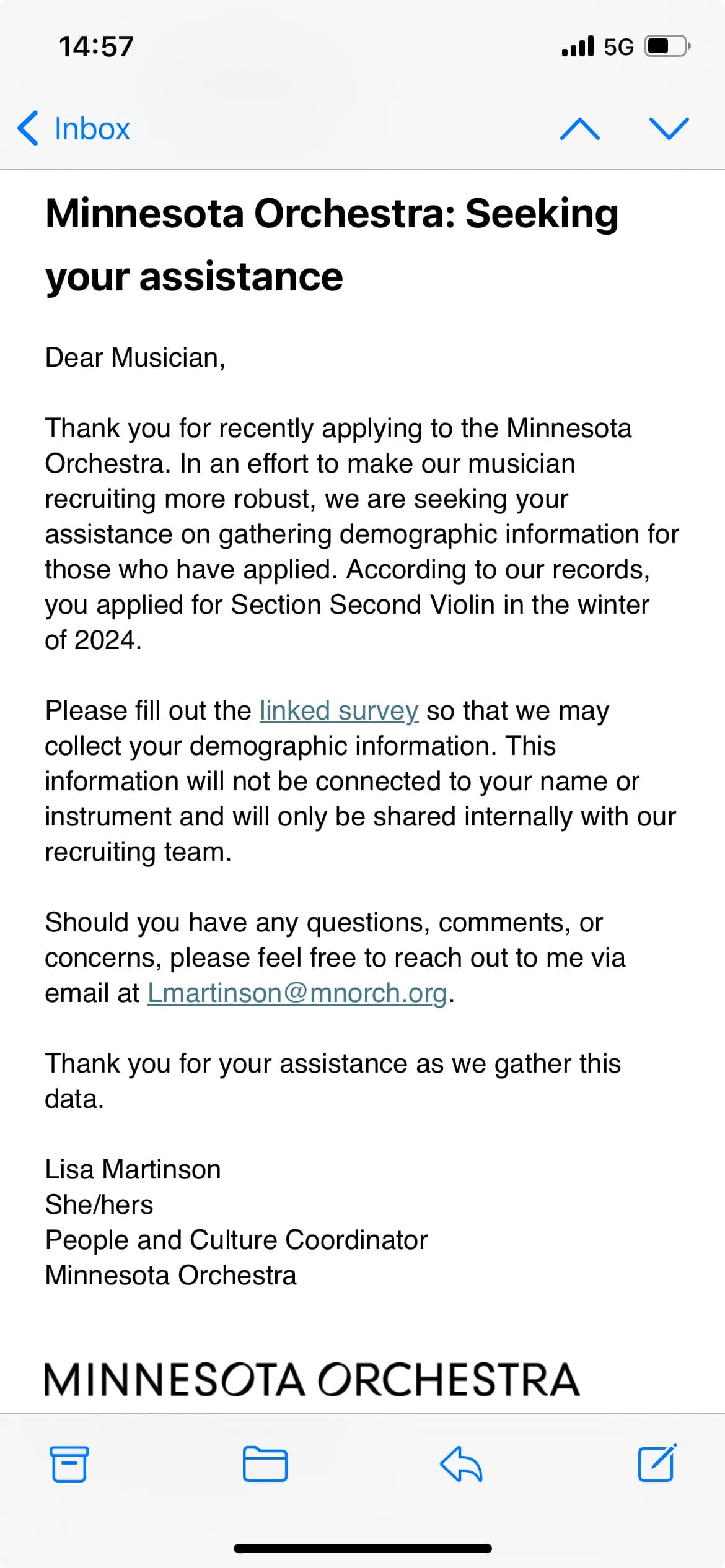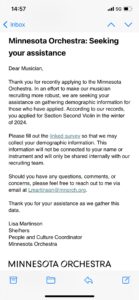Exclusive: Minnesota Orchestra selects musicians on racial grounds
OrchestrasWe have received a message from the orchestra to applicants, making it clear that their racial and ethnic identity will be taken into consideration when selecting those who are suitable to play in the orchestra.
Can’t think where we last saw an orchestral audition process based on racial selection.
Here’s what the orchestra needs to know before they let you in:







Comments